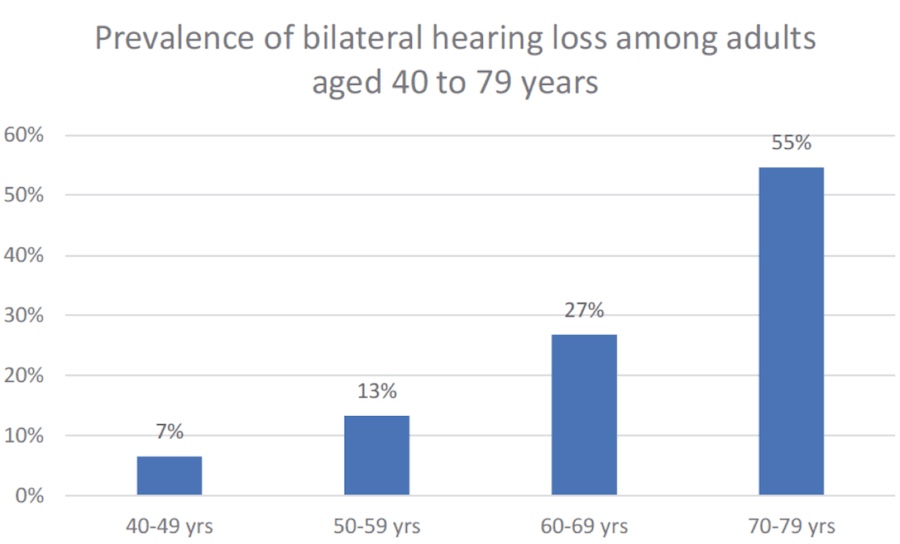You lead a busy life, so scheduling a hearing screening with an audiologist is likely at the bottom of your to-do list (or missing altogether).
It's true. Most people take their hearing for granted. But age-related hearing loss (presbycusis) is inevitable, and it can seriously impact your quality of life because untreated hearing loss increases your risk of social isolation, falls, cognitive decline, and dementia.
The relationship between hearing loss and dementia alone — people with mild, moderate, and severe hearing loss have a 2X, 3X, and 5X increased risk of dementia — makes a case for hearing screenings.
That's powerful evidence, but equally attention-getting is this: A 10-decibel loss of hearing reduces cognitive performance. Although up to 20 decibels of hearing loss is considered normal hearing, Columbia University research revealed a 10-decibel loss is enough to harm cognition. In other words, any amount of hearing loss is a cause for concern.
"Hearing loss is the largest modifiable risk factor for developing dementia, exceeding that of smoking, high blood pressure, lack of exercise and social isolation." —Jane Brody from The New York Times, December 30, 2019

Why hearing screenings matter
You lose hearing in various ways — aging, occupational or recreational noise, injuries, infections, and chemotherapy. But irrespective of how you lose it, knowing the status of your hearing is vital for sustaining your health.
The payoff: Regular hearing screenings give you the benefit of treating hearing loss as soon as required. Early treatment is a significant advantage because the sooner you treat hearing loss, the sooner you stop further damage to your brain.
Age matters: The rate of hearing loss increases rapidly after 60, but the pace is unique for everyone. That's why getting your hearing tested regularly is so crucial. It's worth repeating: The earlier you catch hearing loss needing treatment, the earlier you prevent further brain damage and deterioration of your quality of life.

Data from: Goman AM, Lin FR. Prevalence of hearing loss by severity in the United States. American Journal of Public Health. 2016 Oct;106(10):1820-2
How often should I schedule a hearing screening?
- For adults 60 and older, schedule an annual hearing screening regardless of whether you are experiencing hearing loss symptoms. More than half of people 70 and older have hearing loss that interferes with their communication ability.
- If you are exposed to loud noises at work or recreationally, schedule annual hearing screenings. Noise-induced hearing loss is almost as common as presbycusis and damages hearing at any age.
- If you suspect you've lost hearing, schedule a screening at any age .
Schedule your hearing screening today
Our free, 15-minute hearing screenings performed by an audiologist are an easy way to find out if you have hearing loss.
Why guess when you can know?
If you have hearing loss, your audiologist will explain
- How much hearing you've lost
- Whether your hearing needs treatment now or later
- The most effective treatment plan

